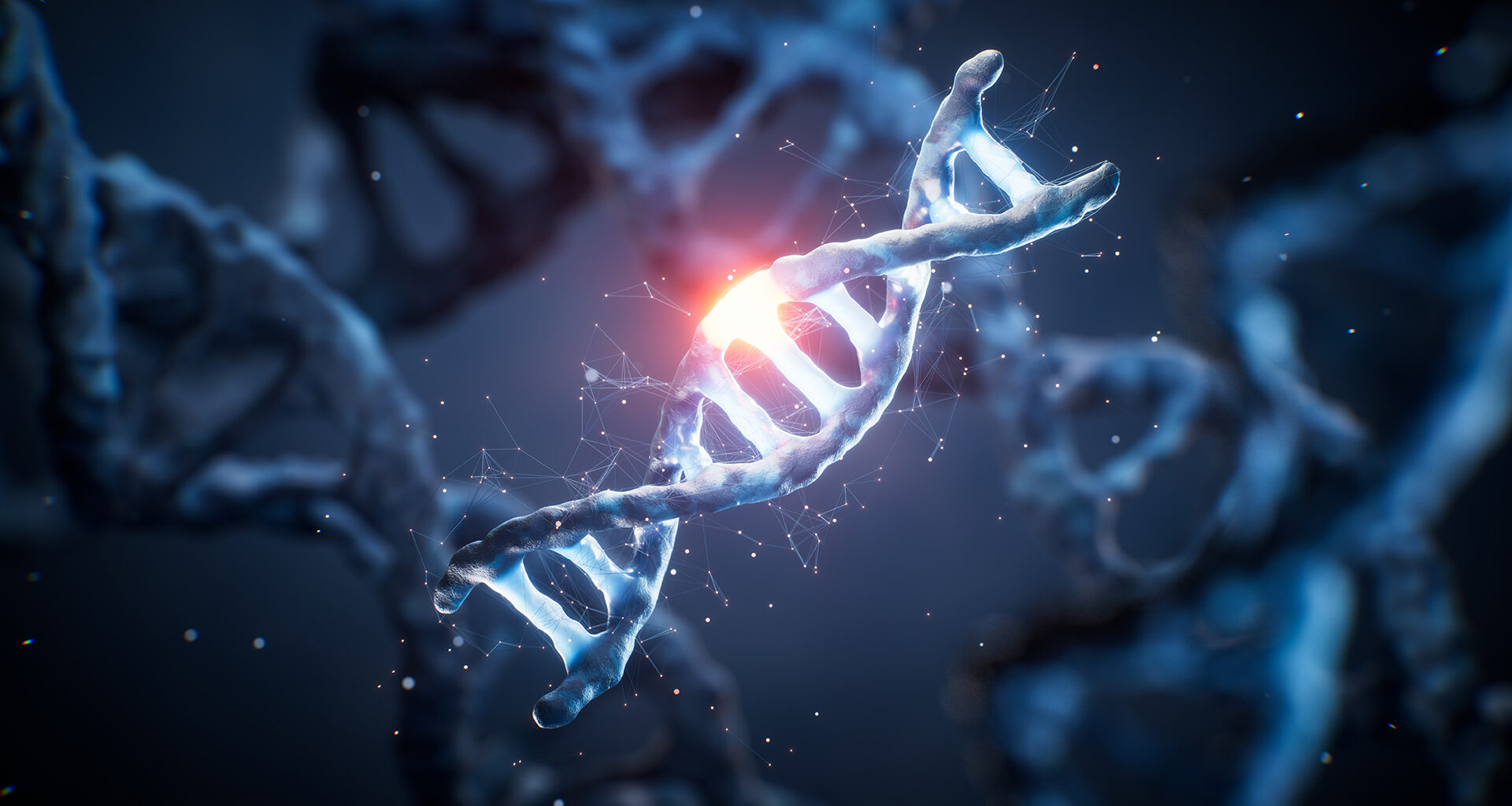PFx Biotech is revolutionising the production of human lactoferrin through precision fermentation, aiming to meet the growing demand for sustainable and allergen-free proteins.
Global demand for sustainable, functional proteins is driving innovation in biotechnology. The fermented protein market is projected to reach $2.49bn by 2035, growing at a CAGR of 7.3%, while the lactoferrin market is expected to expand from $724.6m in 2025 to $985.7m by 2030, at a CAGR of 6.4% (Mordor Intelligence). These trends reflect increasing consumer awareness of gut health, immune support, and the need for allergen-free nutrition.
PFx Biotech, a European startup founded in 2022 and incubated at UPTEC, University of Porto, is pioneering the production of human-identical lactoferrin (hLF) using precision fermentation. Their patented platform enables the scalable manufacture of bioactive proteins with minimal environmental impact. The technology was born from a personal challenge – CEO Ali Osman’s son suffered from cow’s milk protein allergy (CMPA), a condition affecting over 15 million children globally. With no safe alternative to bovine-derived ingredients, PFx Biotech set out to produce human milk proteins without relying on animal sources.
Lactoferrin
Lactoferrin is an iron-binding glycoprotein naturally found in human milk and mucosal secretions. It plays a critical role in immune modulation, iron homeostasis, and antimicrobial defense. However, commercial infant formulas typically use bovine lactoferrin (bLF), which differs structurally from hLF. Human lactoferrin contains approximately 700 amino acids and shares ~60% sequence identity with bLF, but key differences in glycosylation patterns and receptor-binding domains affect its bioactivity and immunogenicity. Moreover, intensive dairy farming, where antibiotics and growth hormones are still in use, poses health and sustainability risks besides supply chain challenges and high operational costs related to the low concentration of lactoferrin in bovine milk.
To illustrate these differences, our team at PFx Biotech developed a proteomics comparison chart from published sources highlighting amino acid sequence divergence and glycan site variability between hLF and bLF. The chart below shows that, while both proteins retain iron-binding domains, hLF exhibits higher affinity for human receptors and enhanced cytokine stimulation.
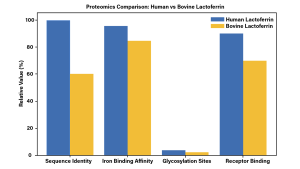
Our precision fermentation manufacturing process
PFx Biotech’s proprietary manufacturing process involves:
Encoding human lactoferrin genes into proprietary microbial strains.
Cultivating these strains in bioreactors with water, sugar, and nutrients.
Harvesting and purifying the protein using advanced downstream processing.
Following successful 150L pilot runs, PFx Biotech enters the scale-up phase with fermenters ranging from 1,500L to 75,000L. These trials aim to produce kilogramme-scale quantities of hLF for sampling under Material Transfer Agreements with selected commercial partners.
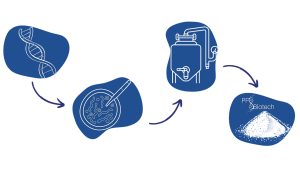 Fig. 1: PFxBiotech’s precision fermentation manufacturing process
Fig. 1: PFxBiotech’s precision fermentation manufacturing process
The company has also established a Nutrition and Applications Lab in Tagus Park, Lisbon, to support regulatory submissions and product development. Under EU Regulation 2015/2283, fermented proteins like hLF require novel food approval by the European Food Safety Authority (EFSA). Although many human milk oligosaccharides produced by precision fermentation are approved as novel foods in the EU, Europe is lagging behind in approvals for proteins derived from precision fermentation compared to other markets (see Table 1). PFx Biotech hopes to change that with robust safety and nutritional data.
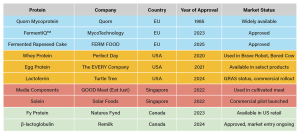 Table 1. Global regulatory approvals for fermented proteins
Table 1. Global regulatory approvals for fermented proteins
Advantages of this approach
PFx Biotech’s platform offers significant advantages over traditional dairy sourcing:
Animal-free and vegan-friendly
Batch consistency and scalability
Reduced carbon footprint and resource use
 Fig. 2: New laboratory facilities and science
Fig. 2: New laboratory facilities and science
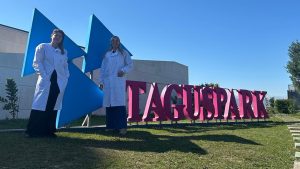 Fig. 3: Staff Dr Diana Oliveira (Head of R&D) and Dr Ana Roque (Senior Scientist)
Fig. 3: Staff Dr Diana Oliveira (Head of R&D) and Dr Ana Roque (Senior Scientist)
“As global interest in functional proteins grows, PFx Biotech is positioned to lead the next wave of sustainable nutrition,” said Diana Oliveira, currently PFx Biotech’s Head of R&D. She also highlighted the importance for Europe to have dedicated research power behind understanding the possibilities of human-identical proteins obtained via precision fermentation. By unlocking the potential of human-identical lactoferrin, the company aims to improve health outcomes for infants, elderly populations, and individuals with dietary restrictions.
The future of protein is fermented – precisely.
Please note, this article will also appear in the 24th edition of our quarterly publication.

